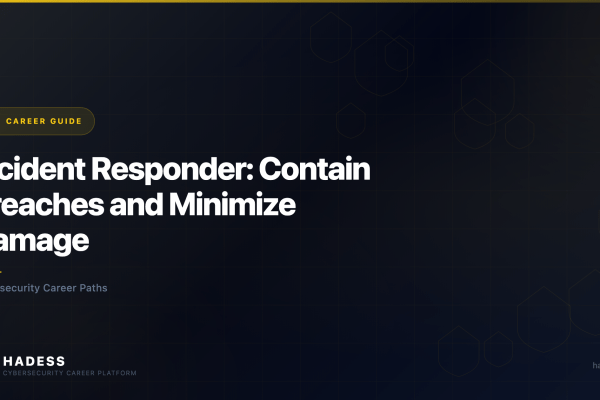
Bug Bounty Hunter: Get Paid to Find Real Vulnerabilities
Bug Bounty Hunter: Get Paid to Find Real Vulnerabilities. Skills, career paths, and how to get started on the HADESS platform.

Bug Bounty Hunter: Get Paid to Find Real Vulnerabilities. Skills, career paths, and how to get started on the HADESS platform.

Application Penetration Tester: Go Beyond the Web Layer. Skills, career paths, and how to get started on the HADESS platform.

Network Security Engineer: Lock Down the Perimeter and Beyond. Skills, career paths, and how to get started on the HADESS platform.

Mobile Penetration Tester: Break Apps on iOS and Android. Skills, career paths, and how to get started on the HADESS platform.

Mobile Application Security Specialist: Secure Apps at Scale. Skills, career paths, and how to get started on the HADESS platform.

Security Manager: Build and Lead Security Teams. Skills, career paths, and how to get started on the HADESS platform.

Cyber Intelligence Specialist: Turn Data into Actionable Intelligence. Skills, career paths, and how to get started on the HADESS platform.

CISO: Lead Security Strategy Across the Organization. Skills, career paths, and how to get started on the HADESS platform.

Incident Responder: Contain Breaches and Minimize Damage. Skills, career paths, and how to get started on the HADESS platform.

Digital Forensic Analyst: Uncover What Really Happened. Skills, career paths, and how to get started on the HADESS platform.

Information Security Analyst: Protect Data and Manage Risk. Skills, career paths, and how to get started on the HADESS platform.

Data Privacy Officer: Navigate Regulations and Protect Personal Data. Skills, career paths, and how to get started on the HADESS platform.